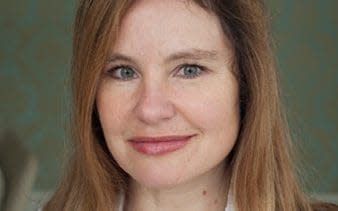'Nerd' and 'geek' insults should be classed as hate crimes, academic claims

Calling people a 'nerd' and 'geek' should be classed as a hate crime, an academic has said after studying the impact of bullying on high IQ children.
Psychology lecturer and psychotherapist Dr Sonja Falck said the "divisive and humiliating" anti-IQ terms are hate crime's "last taboo".
Dr Falck, who also runs a Harley-Street psychotherapy practice warned that the harmful words should be categorised in the same way as homophobic, racial, and religious slurs are under UK hate speech legislation.
A specialist in individuals with very high IQ, Dr Falck has spent eight years researching the discrimination against them, and interviewing high-ability adults about their own experiences.
During 20 hour and a half interviews (of which 16 were Mensa members) Dr Falck asked individuals about their experience, such as how they had come to realise that they had a high IQ.
She then conducted a contextual analysis of literature and other research to identify themes, one of which was the idea of belonging or not belonging.
“That was a really big one,” she told the Telegraph. “That’s where being taunted with names like ‘nerd’ or ‘egghead’ or ‘brainiac’ comes in because the person is being set apart as being different to others and feeling like they’re a misfit and they don’t belong.”
Dr Falck added that all her interviewees had felt like this at some point in their lives.
Her research has now been published in her new book 'Extreme Intelligence'.
Speaking at the book launch, she said the next Government must take legislative action to force societal change.
She said: "The N-word was common parlance in the UK until at least the 1960s.
"Other insulting slurs about age, disability, religion and gender identity remained in widespread use until relatively recently.
"Society at the time turned a blind eye to their impact by passing them off as harmless banter.
"It is only with the benefit of hindsight and academic research that we realise how wrong we were.
"The same can be said about anti-IQ words like 'nerd', 'brainbox', 'geek', 'egg-head', 'smart-arse', 'dweeb' and 'smarty-pants'," she added.
"Slurs such as these will continue to be used unabated at the expense of the brightest members of society unless and until legislative action is taken."
In England and Wales, any communication which is threatening or abusive and directed towards a person on account of their race, colour, disability, nationality, ethnicity, religion, sexual orientation or gender identity is classed as hate crime.
It is covered by a variety of statutes including the Public Order Act 1986 and penalties can include imprisonment, fines, or both.
"The government says it is committed to creating an outward-looking, inclusive society yet continues to tolerate divisive, discriminatory language," Dr Falck added.
"In the short space of time since racial, homophobic and religious hate speech was banned, it is now seen by most as morally abhorrent.”
"It would be progress for British society to come to feel the same way about hate-filled, prejudicial slurs against our high-IQ community."
Dr Falck went on to warn that such name-calling, especially as a child, can cause psychological damage that may last a lifetime and that extending legislation to include these slurs would help to stamp out the "archaic" victimisation of more than one million Britons with a 'gifted' IQ score of 132 or over.
Dr Falck is herself a member of high-IQ society Mensa, the international high IQ society, who support non-discrimination against those with very high IQ.
John Stevenage, CEO of Mensa, said: "Very high-IQ individuals often experience isolation or bullying from people around them because they are perceived as being different from the majority.
“"Mensa as an organisation gives people with very high IQ a community which is non-judgemental and inclusive of difference.
"Put simply, everybody is different, so no-one is."
